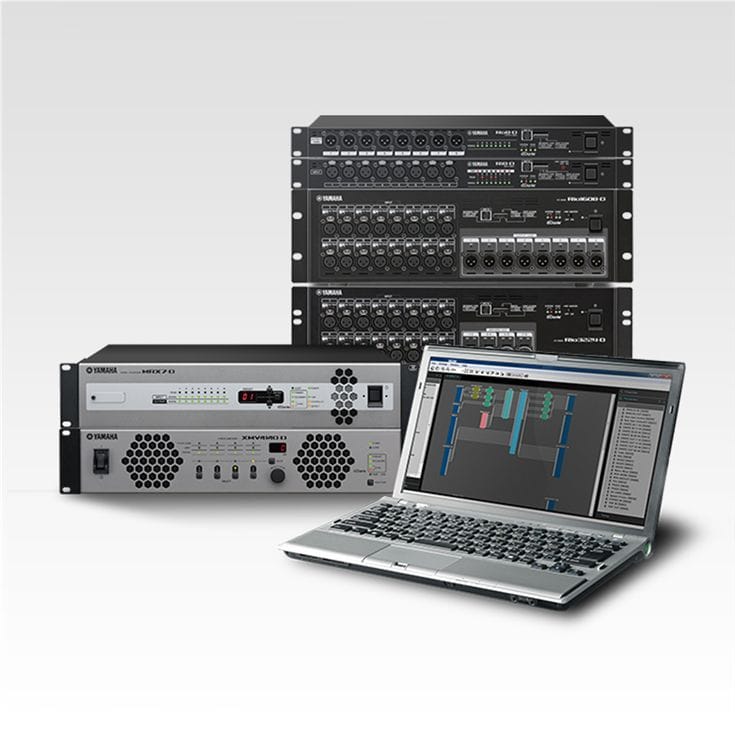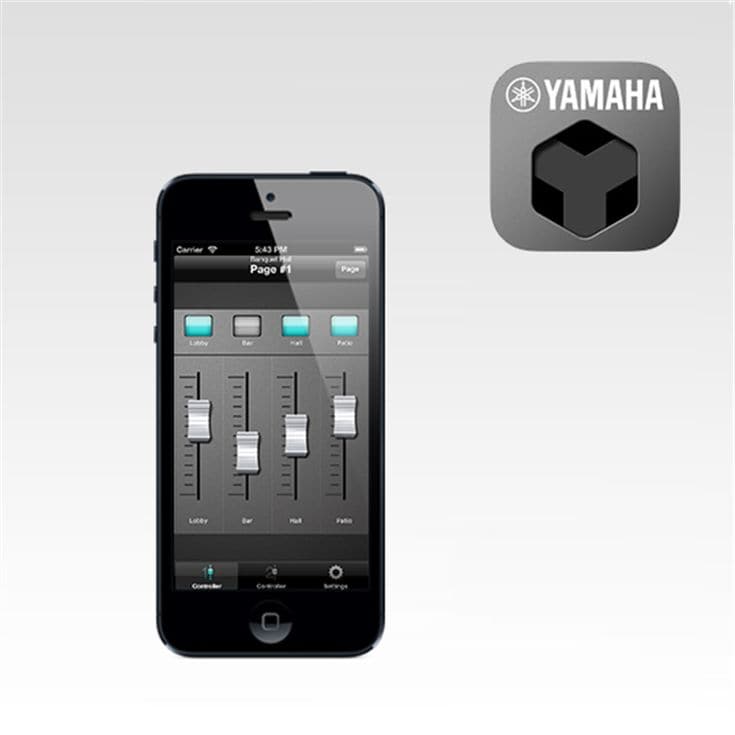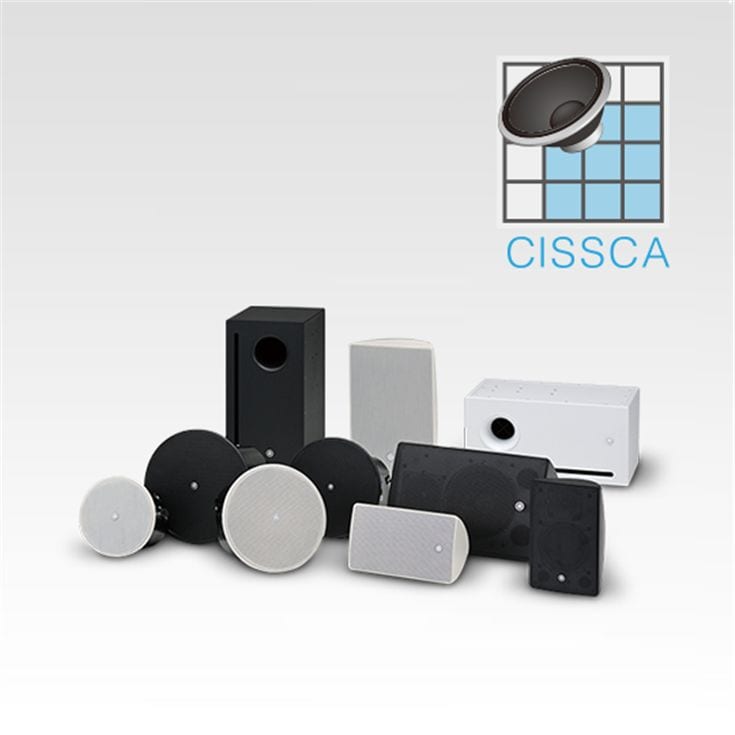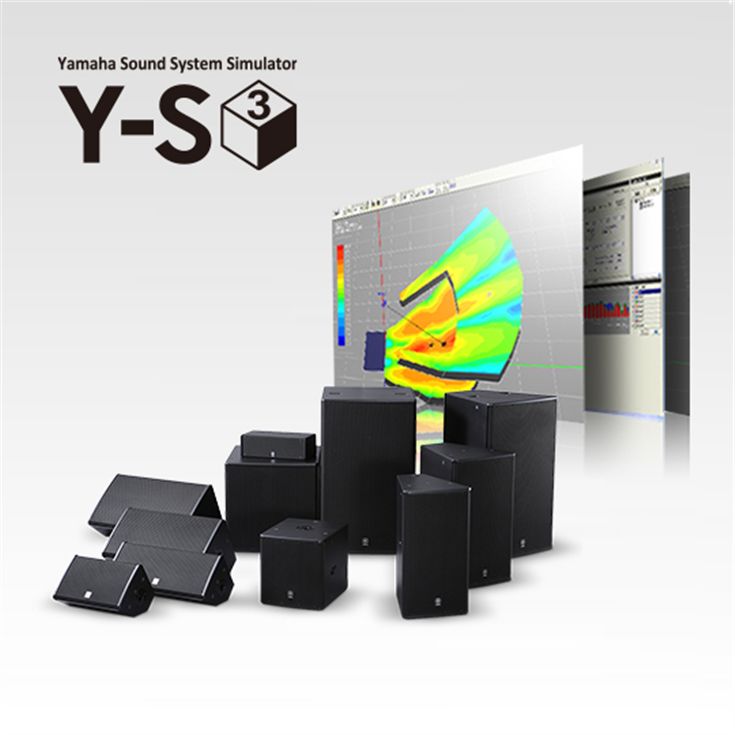Column
Better Sound for Commercial Installations

Better Sound for Commercial Installations
The sound systems that broadcast the information you're hearing have been carefully designed and installed to suit the needs of each individual facility.
This series offers information aimed at achieving the best possible sound in commercial installations, from the basics to equipment selection and day-to-day operation.
Products guide videos
These videos will guide you through the important but useful tips when using our Commerical Installation Solutions product line.

- : A brief overview of the Commercial Installation Solutions lineup and features.
- : This installment offers a more detailed introduction to the MTX processors, plus some of their useful features and uses.
- : This presentation covers basic XMV amplifier operation and some convenient features.
- : Basic MTX processor setup procedure using the MTX Editor software, plus system connections.
- : A quick look at these compact, convenient, but at the same time remarkably powerful mixing amplifiers for small to mid-size applications.
- : This video introduces a speedy and safe guide on how to install Yamaha's VXC series (F model) speaker.
Speaker Calculator
Commercial Installation Solutions Speaker Calculator (CISSCA) is a software application that quickly calculates the number of speakers required for optimum performance in a room specified by the user, plus the effective sound pressure level of the system. The user specifies the room size, type of speakers to be used, and speaker layout.
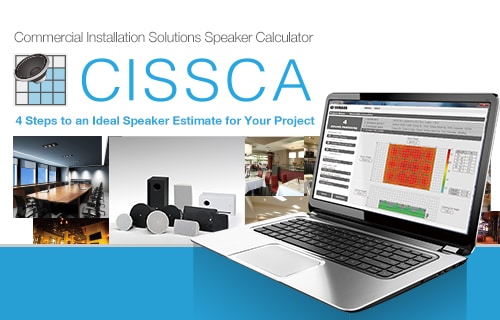

- Step1:Enter the size of the room and the height of the listeners’ ears.
- Step2:Select the target sound pressure level and the type of speakers to be used.
- Step3:Specify a speaker system layout. An estimate of the number of ceiling speakers required for the project will be provided, plus surface mount speakers and subwoofers that can be positioned as required.
- Step4:Check the difference between the effective sound pressure level of the estimated system and the target sound pressure level entered in STEP 2. Click the “REPORT” button to output the results in report form.
Ceiling Speakers
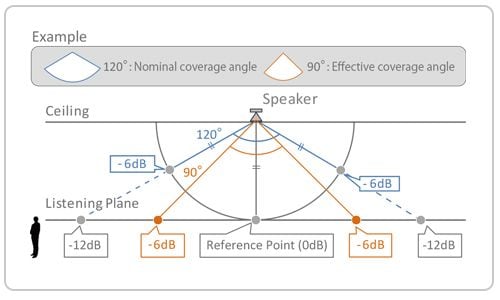
Ceiling Speakers
It is important to note that the nominal coverage angle listed in ceiling speaker specifications is not the same as the speaker’s actual effective coverage angle. SPL at the nominal coverage angle is 6dB lower than the on-axis SPL, measured at a constant distance from the speaker. The effective coverage angle is defined as the angle at which the SPL is 6dB lower than the on-axis SPL at the listening plane.
The effective coverage angle is usually about 70~80% of the nominal coverage angle. CISSCA calculations are based on effective coverage angles.
Surface Mount Speakers
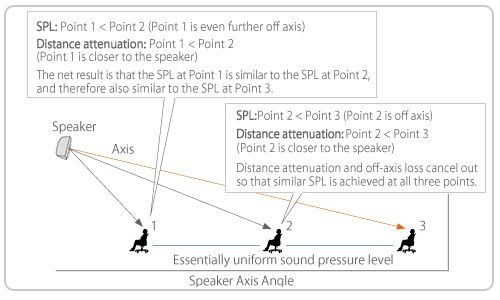
Surface Mount Speakers
Uniform sound pressure level can easily be achieved throughout the listening plane with speakers that include by aligning the speaker's axis with the head of the most distant target (listener). This works because of the relationship between distance and coverage angle. When the perpendicular axis is aligned with the last row, the natural distance attenuation at the last row and the off-axis attenuation at closer rows tend to result in uniform SPL distribution.
CISSCA allows fine adjustment of surface mount speaker tilt angle for maximum system design flexibility.
Software
Yamaha provides a number of software applications that can facilitate and enhance your system designs as well as simplify the operation of installed systems.


